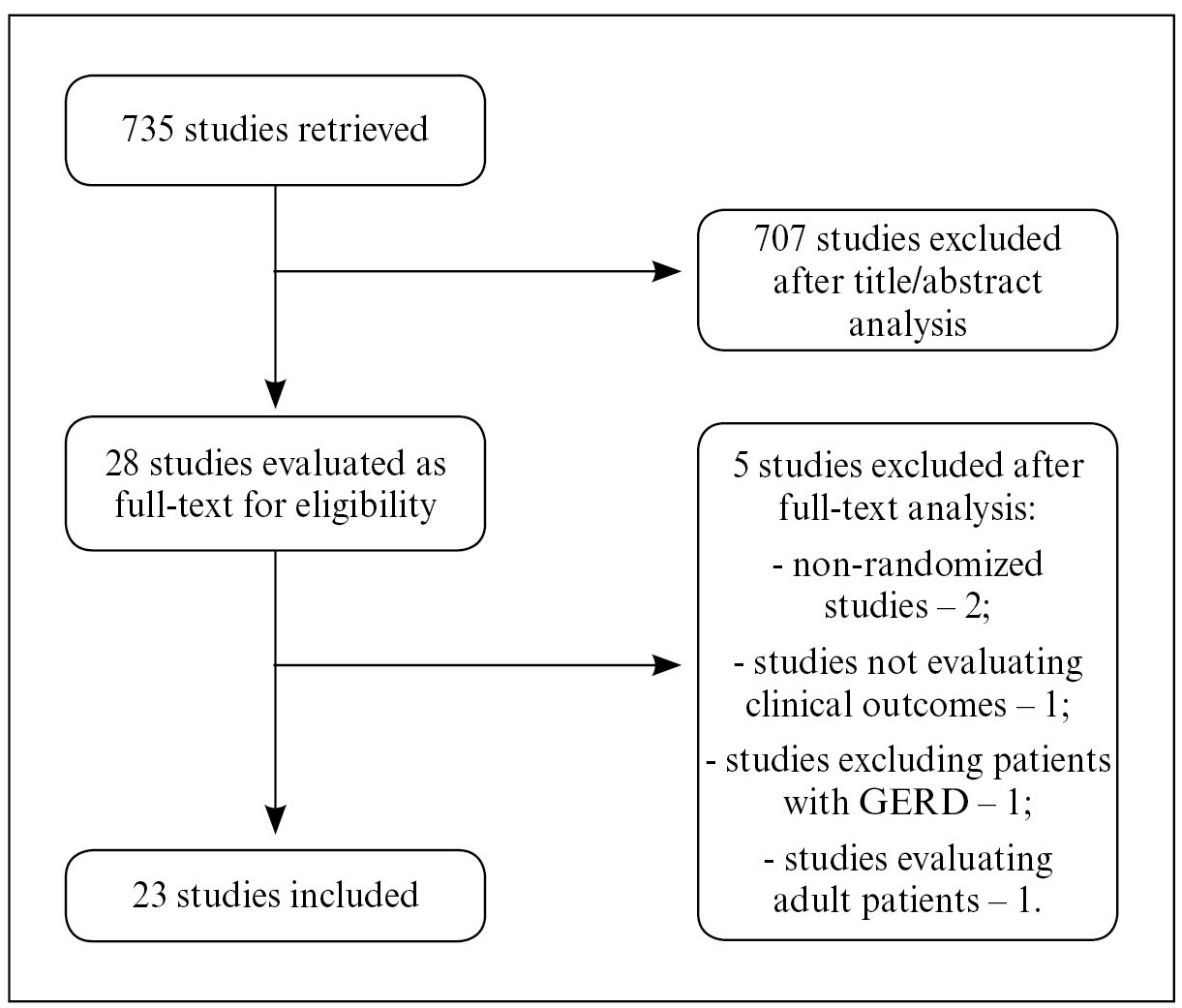ABSTRACT
BACKGROUND:
Proton pump inhibitors and histamine H2 receptor antagonists are two of the most commonly prescribed drug classes for pediatric gastroesophageal reflux disease, but their efficacy is controversial. Many patients are treated with these drugs for atypical manifestations attributed to gastroesophageal reflux, even that causal relation is not proven.
OBJECTIVE:
To evaluate the use of proton pump inhibitors and histamine H2 receptor antagonists in pediatric gastroesophageal reflux disease through a systematic review.
METHODS:
A systematic review was performed, using MEDLINE, EMBASE and Cochrane Central Register of Controlled Trials databases. The search was limited to studies published in English, Portuguese or Spanish. There was no limitation regarding date of publication. Studies were considered eligible if they were randomized-controlled trials, evaluating proton pump inhibitors and/or histamine H2 receptor antagonists for the treatment of pediatric gastroesophageal reflux disease. Studies published only as abstracts, studies evaluating only non-clinical outcomes and studies exclusively comparing different doses of the same drug were excluded. Data extraction was performed by independent investigators. The study protocol was registered at PROSPERO platform (CRD42016040156).
RESULTS:
After analyzing 735 retrieved references, 23 studies (1598 randomized patients) were included in the systematic review. Eight studies demonstrated that both proton pump inhibitors and histamine H2 receptor antagonists were effective against typical manifestations of gastroesophageal reflux disease, and that there was no evidence of benefit in combining the latter to the former or in routinely prescribing long-term maintenance treatments. Three studies evaluated the effect of treatments on children with asthma, and neither proton pump inhibitors nor histamine H2 receptor antagonists proved to be significantly better than placebo. One study compared different combinations of omeprazole, bethanechol and placebo for the treatment of children with cough, and there is no clear definition on the best strategy. Another study demonstrated that omeprazole performed better than ranitidine for the treatment of extraesophageal reflux manifestations. Ten studies failed to demonstrate significant benefits of proton pump inhibitors or histamine H2 receptor antagonists for the treatment of unspecific manifestations attributed to gastroesophageal reflux in infants.
CONCLUSION:
Proton pump inhibitors or histamine H2 receptor antagonists may be used to treat children with gastroesophageal reflux disease, but not to treat asthma or unspecific symptoms.
HEADINGS:
Gastroesophageal reflux; Child; Proton pump inhibitors; Histamine H2 antagonists

 Thumbnail
Thumbnail
 Thumbnail
Thumbnail

